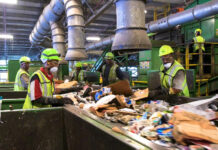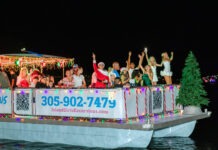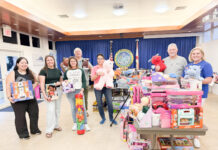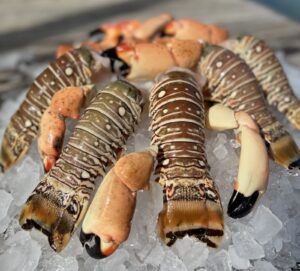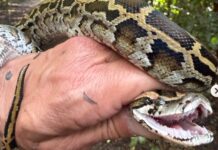Dear Editor:
Save Our Key Deer Inc. (SOKD) learned through a social media post that the U.S. Fish & Wildlife Service’s Key Deer Refuge on Big Pine Key is accepting volunteer applications for a new “Key deer research and response program,” and recently held an open house and meeting about it.
The nonprofit SOKD has a longstanding commitment to the health, safety and welfare of the endangered Key deer. For many years, we have requested that the USFWS allow us to run a Key deer rehab and response/rescue program, which would be funded and staffed by SOKD, with no expense or staffing burdens to USFWS, FWC or the public. USFWS repeatedly rejected our ideas and proposals to collaborate.
With no luck establishing a positive relationship with USFWS staff, we approached the state agency that is now most commonly required to react to Key deer field emergency calls – the Florida Fish and Wildlife Conservation Commission (FWC) about our forming a Key deer response and rehab program. FWC enthusiastically provided us with all the guidelines and procedures required to gain permits, certifications and also the rehab facility construction guidelines for Key deer (small deer). With their “green light,” we spent tens of thousands of dollars constructing the rehabilitation enclosure and purchasing the best and most appropriate capture and treatment equipment to do the job right. The permit was issued, which includes Dr. Dunn as our medical director. I am a critical care RN and an experienced wildlife rehabber, including deer, so with FWC’s permission, I trained 14 volunteers to assist with response, assessment and assistance for deer-in-distress calls – including capture. The U.S. Fish & Wildlife Service shut down our entire program after our first few response cases (which were successful).
The agency said the FWC shouldn’t have issued me a permit. This was very confusing because both agencies had conference call meetings about it throughout the process.
Save Our Key Deer supports the refuge’s newly announced volunteer initiative, as there is a need for community support in Key deer rescue. We welcome ANY appropriate effort that genuinely aids the Key deer. We do, however, wonder about the timing.
The refuge is now seeking volunteers for an effort it previously blocked. SOKD is dedicated to Key deer rescue, rehabilitation and conservation, so we are willing one more time to open communications about their acceptance of the experience, equipment and assets we have to offer.
SOKD will request a formal meeting with USFWS officials involved with their new program to discuss our role (if any) in their new program. We will likely suggest a formal, shared protocol for responding to deer-in-distress calls and appropriate rehab (for human-caused orphaned fawns, for example). This could involve dispatching either SOKD under our permit, or refuge volunteers, depending on the location and nature of the incident. We will ask them to allow us to exercise our rights to perform rehab under our FWC permit (which includes field response). We have trained volunteers, an outstanding veterinarian experienced in large mammal care, a rehab facility, an electromagnetic capture net, and plenty of appropriate equipment.
For the sake of the endangered Key deer, we hope something agreeable to both SOKD and the refuge can be worked out.
Sincerely,
Valerie Preziosi
President, Save Our Key Deer
www.saveourkeydeer.org

